Issue 56 // September 2022

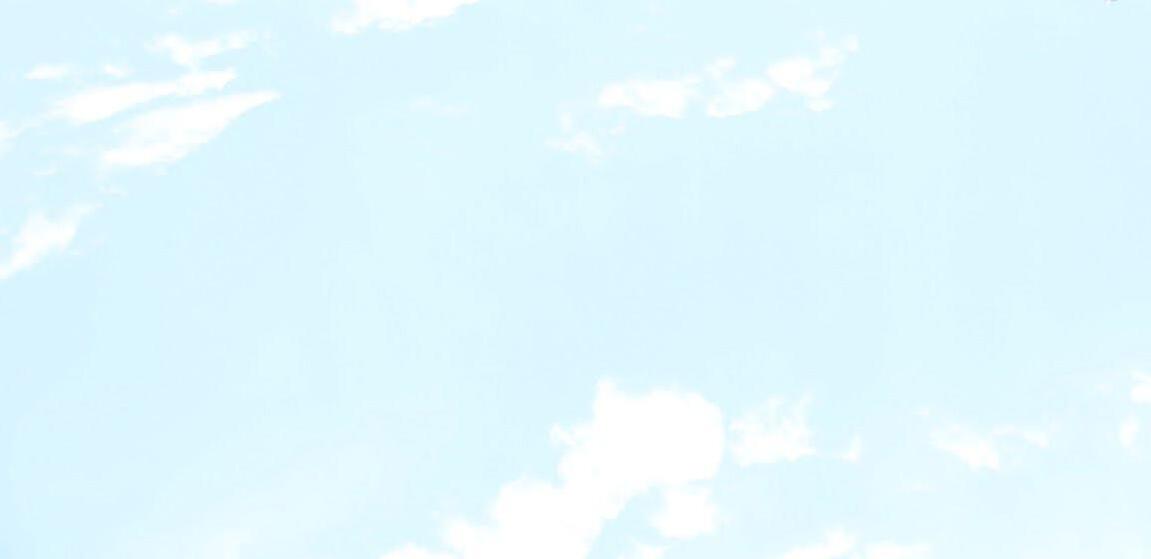
The Career Guide

September 2022
The history of labor day
A glimpse into the future: The journey towards a pharmacutical career
From UH graduate to Amazon data engineer
GIVEAWAY

Internships: You need one, but why are they important?
BUGGIRL200: You don’t need Bauer to run a buisiness
Homemakers: The cornerstone of society
Welding your way to sucess
It’s possible, artists! An interview with Don Ferrarone

Life changes, and so do careers
Paving your own way: Navigating a successful career despite a disability
Utilizing University Career Services to become a passionate professional
Editorial
Cynthia Isabel Zelaya Ordoñez cooglife@thedailycougar.com
Cover

Cynthia Isabel Zelaya Ordoñez
Writers
Valeria Zarytska
Cynthia Isabel Zelaya Ordoñez
Binh Tang
Jenny Truong
Logan Linder
Rey Mattes
Maria Godinet
Rachel E. Coleman
Atitikta Kimar
Adrian Romero
4 5-6 7-9 9 10-11 12-13 13-15 16-17 17-18 19 20-21
22-23
A Letter from the Editor
Greetings, bienvenidos.
What did you want to be when you grew up? A rockstar? An astronaut? A doctor?
I didn’t even know what field I wanted to study until the twilight of my senior year in high school. But in retrospect, I’m not surprised I landed in journalism.

I remember dressing up every afternoon, stumbling next to the television in my mom’s heels so I could repeat everything Maria Celeste said as she anchored “Al rojo vivo” on Univision. When I was a few years older, I handwrote multiple copies of a Zelaya-Ordoñez family gossip newspaper. Then, I would sell them to visiting relatives for 25 cents, only to do it again the following week.

I didn’t know I wanted to be a journalist. But I did know my desires. I wanted to research, create, write, speak and film. My core values shaped out to be courage, honesty and community. Journalism was the natural choice if what I sought in a career was fulfillment.
But not everyone realizes their career so soon.
The greatest disservice society does to young adults is convincing them there is only one ‘proper’ path to success. All of a sudden, teenagers are expected to know exactly what they want to do with the rest of their lives. Many, with no career or savings to their name, take on crippling loans to pay for an overpriced education that doesn’t even guarantee them a job in their field, let alone success and stability. McDonald’s or college are not your only options.
In this month’s issue of Cooglife, we look at multiple different career options. Yes, we explore some of the wonderful opportunities college can provide within fields like medicine and computer science, but we also give a platform to so much more. We spotlight a college dropout that thrived in entrepreneurship, a successful welder and a Hollywood screenwriter/producer. We also uplift the homemaker, the unsung, unpaid hero on a roundthe-clock shift the nation would
fall apart without. And that’s just the tip of the iceburg!
The point of diversifying our articles is to show you a tiny glimpse of the possibilities available to you. Additionally, you’ll find support in switching career, advice regarding internships and resources from UH career services.

We all have different paths in life and labor, dictated by our skills and interests. Embrace your path, fearlessly and proudly, even if you still can’t see too far ahead. Our differences are what make us strong. The nation would fall apart if we all tried to follow a “safe” college major, despite our abilities or desires. I hope this edition inspires you to pursue the best path for you. No one knows your heart best. And whatever you choose, good luck. I believe in you.
Cynthia Isabel Zelaya Ordoñez Executive Editor
The History of Labor Day
By Valeriia Zarytska @_lr4k_
The U.S. Department of Labor brochure on Labor Day states;
“This holiday originated from the American Labor Movement. It has become national because the country deems it worthy to celebrate annually with gratitude the contribution that American workers have made and continue to make to the power, wealth and prosperity that has become the property of our people.”

But what does this holiday mean for modern Americans? An official end of summer? An extra day off from school and work?
Did you know that this year marks the 140th year since the first celebration of Labor Day was held in New York? It was officially recognized as a public holiday in 1887 in Oregon. Only seven years later in 1894, Labor Day became a federal holiday, celebrated in 30 states. It emerged at the end
of the 19th century, during the peak of the Industrial Revolution and, mechanization. Labor Day is not as simple of a holiday as you might think. Let’s delve deeper into its origin.
Before Labor Day
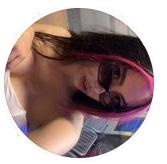
In the 19th century, American adults worked 12 -hour days, seven days a week. Children worked similar hours, but for pennies on the dollar while struggling with cold and hunger. None of the employers provided their employees with sick leave, paid leave, or medical benefits. Under such conditions, the Trade Union Movement began to emerge.
American workers began unionizing in order to push against the prevailing injustice. One of their collective demands was a special holiday in honor of the working people. At first, these movements were contained within the state level. Under mounting pressure and public
support, states began to pass laws to protect the ordinary worker. Finally, on June 28, 1894, the US Congress introduced a federal law inducting the first Labor Day. From then on, Labor Day would be celebrated on the first Monday of September.
Choosing a date
In most countries, this holiday is celebrated on May 1. In May 1886, during workers’ demonstration in Chicago’s Haymarket Square in support of the 8-hour work day, an explosion occurred. This blast ended up killing seven policemen and four civilians. These events attracted attention in other countries leading to the first of May being the occasion for annual protests by workers around the world.
When the time came for the US to choose a date for the holiday, President Cleveland decided to move away from the globally accepted date, as May the 1st was
4 COOGLIFE // September 2022
associated with death and loss by the nation.
Unions today
American Trade Union membership has declined in recent years as the globalization of the world economy has changed the pattern of employment in the US. Many jump from multiple different jobs and industries where unions don’t exist or workers don’t feel
the need to join when they don’t plan on being in the industry for long. Other workers are employed by large corporations that actively union bust to save on the cost of wages. Many union members today are employed in the state or municipal sector, rather than working in factories, as was typical 100 years ago. Others are in very specialized unions, like those in electrical, railway or writing unions. But most com-
monly, workers don’t see the need for a union as they already benefit from the rights strikers earned for them years before.
Nevertheless, we must know and appreciate the work done by American workers of the 19th century. Thanks to them, we are now working in convenient and safer conditions often taken for granted.
A glimpse into the future
The journey towards a pharmaceutical career
By Cynthia Isabel Zelaya Ordoñez @cynthia_zelaya_

in that aspect to learn.”
pharmaceutical school if they lacked a passion for learning.
“Curious and just like ready to learn,” said Anna Esther Lopez Concepcion from across my desk, smiling as she remembered. “I think even now, I just see myself always wanting to learn more, always curious about things. I’m definitely curious and motivated
Looking at Concepcion today, it is difficult to imagine her as a child. She is put together, dressed professionally, articulate and poised. Yet, the traits she expressed as prominent in her childhood still some though. Intelligent, inquisitive eyes, eager to match my questions. And most importantly, no one could make it far into
The student profile
Conception is a third-year pharmaceutical student at UH College of Pharmacy. Although young and energetic, it could be argued that she is more knowledgeable about her chosen career than most of us are prior to graduation.

5 COOGLIFE // September 2022
“If you were to describe yourself as a child, what would you say?”
Currently, she is a pharmaceutical intern at Randall’s, spending every moment she isn’t busy with school filling prescriptions, talking to customers, dealing with insurance and learning about her trade. She’s learned a lot through hands-on experience, including that her future probably doesn’t lie with retail pharmacy. Conception is very patient-oriented, passionate about building long-term relationships with them so she may tailor their medication to their individual needs and be quicker to detect abnormalities. This is why she has her heart set on ambulatory care.
For those interested in pursuing a career in pharmacy (or any branch of medicine), they should go in understanding the journey will be difficult. Earning a Pharm. D. takes anywhere from six to 10 years (depending on your program, school and personal ability). Luckily, UH has ranked number one in the nation in firsttime NAPLEX test passes from 2017-2020, so you’re in the right place if you’re looking for a faster track.

“At UH, we have really, really good professors,” said Concepcion. “I feel like I have more access to them than I ever did in undergrad. You build up a relationship with them. I personally feel cared about because they’ll talk to us and be like, ‘Hey, you’re not doing as well on this topic. What can we do to help you learn it?’”
The unwavering support from UH professors determined to see you succeed is undeniable. However, school won’t be cheap. Although
Conception is a scholarship recipient, she admits to supporting herself (food, car, class, etc.) through student loans.
Cost v. gain
The total cost of pharmaceutical school, from start to finish, varies from $65,000 to $200,000. This includes undergraduate school but does not include things like books, living expenses, and other miscellaneous fees.
But hard work is rewarding. Conception feels great joy in taking care of people, in making their lives and health better. She also carries pride in her heart when she remembers she is following in her mother’s footsteps by going into medicine. Conception’s mother was a doctor in Cuba. She wasn’t able to have her license transferred when she immigrated to the United States. But instead of giving up, she learned a whole new language, went back to school and returned to the workforce as a registered nurse. The work ethic Conception saw modeled to her as a child and the rewards it can bring inspire her
to move forward.
Additionally, she can expect to make around $120,000 to $160,000 per year in Texas.
The future
When asked what advice she would give to someone to pursue a career in medicine, Concepcion responded that it’s best to get comfortable with the idea of long-term hard work and sacrifice.
“Learn to love learning,” said Concepcion. “Every day, there’s going to be something you don’t know. That’s okay. You’re gonna sit down, you’re gonna study it and you’re gonna learn it.”
Conception is a glimpse into our future. She is a diligent Cuban American who inherited her work ethic and honor from her family. Her greatest desire for the future of her field is to see it become more affordable and accessible to all who need it. It is a future worth supporting, both for her and for anyone wanting to pursue a similar path.
6 COOGLIFE // September 2022
Photo by Cynthia Isabel Zelaya Ordoñez
From UH graduate to Amazon data engineer
By Binh Tang @fitz.1995
Tony Nguyen put down his headphones, someone’s voice still jutting out of that heavy-set device, ready for our interview to begin.
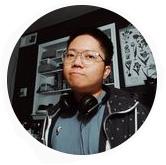
Nguyen moved from Minnesota to Houston in 2017 after graduating high school. Houston is more or less a place that he calls home now. He is a University of Houston alumn, having earned a bachelor’s degree in Computer science in 2017 and a master’s degree in statistics and data science. Now, he is working at Amazon as a Data Engineer.

Cooglife sat down with Nguyen to talk about his path from a college student at UH to a fulfilling career in data engineering for the sixth largest publically traded retail company in the world.
The interview
What made you interested in tech?
When I was little, I played a lot of video games. I found it fascinating and I was always excited to interact with computers. So that was my first experience with computers. Then in middle school, I started to learn Pascal. And I have to say that it was love at first sight. I loved coding right away. In high school, I had a chance to learn Python, a programming language that can help you do a lot of things. Then I learned more programming languages when I was here at the university. One of the best things as a computer science student is the exhilaration of being able to debug the code in a few hours and ultimately get the code fixed. It was very rewarding. So you could say that I like solving prob-
lems too. When I was in my last two years, I transitioned to the territory of data science which inspired me to do my master’s degree in statistics and data science.
How relevant does the education you had to the job you’re working? And what advice can you give to future CS graduates?
Not entirely. In college, you learn the fundamentals, which would help a lot, but to do well in the industry requires beyond what your professors have taught.
My advice is not to stress yourself out. Get rid of the mentality that you need to be the best in class. Being the best in a small territory isn’t getting you far. But I think that trying to be the best version of yourself is a better way. You need to know and look for skills
7 COOGLIFE // September 2022
Photo by Binh Tang
of yourself is a better way. You need to know and look for skills needed for the industry you’re working in. How can we do that? By utilizing the resources right here at our campus. I joined and was a tutoring director at Cougar CS and a member at IEEE (the Institute of Electrical and Electronics Engineers). The goal is to learn more about the industry –things that your professors don’t always tell you. I was also the director for CodeRED – a hackathon where brilliant students gather to get their hands on the problems. More importantly, it is the best way to expand your network. You won’t know who you’re bumping into. That could be the one who would refer to his or her company when you graduate.
What is your interview prep look like?
I can’t stress more the significance of practice. There is a ton of online resources like Leetcode to practice coding. The more you train your brain, the better you do in your interviews. And I know there is hardship and difficulty during this time. But remind yourself that you’re better than yesterday. You also should watch videos on YouTube. Many talented people on that platform are going to help you out. Each company has its interview styles and processes. So, it’s best to get familiar with the interview process tailored for every company that you’re applying to.
I had about 25 to 30 interviews before landing a job at Amazon. So I know mock interviews are a way to step up your game. Do mock interviews as many as you
can, and whenever you can. To lessen the stress during the interview, you need to do this preemptive step: self-talking, recording your answer – imagining yourself in a real situation. If you happen to have a friend or a roommate who is willing to act as an interviewer, you’re in good shape.
When is a good time to prepare for the interviews?
I did my internship during my third year but getting this step done as soon as you can. Working as an intern gives you a chance to have an immediate look into the industry. Also, it’s a great way to gain interview skills and learn new skills. My actual first job was as a teaching assistant for Dr. Nouhad Rizk. It was a great time because I had a chance to learn from my students as well.
Tell me about the first internship. How did you like working there?
My first internship was at Trinity industries as a Data Scientist, a Dallas-based company specializing in railroad services. Was the interview easy? It depends. There were three rounds: a phone interview where they test your knowledge of fundamental concepts and give you a take-home assignment, a presentation where you defend your project, and finally an interview with a current employee who is possibly your future colleague. It sounds scary, but there’s a lot of room to express your ideas. They gave me a chance to prove myself theoretically and practically.
How were the first couple of days at Trinity?
The first days were pretty chill. Working onboarding tasks. It’s like they were giving me a honeymoon break so I can go networking and meet people, and learn about the company. I had a great time working on many aspects of machine learning.
Hired by Amazon
Why did you decide to transition to Amazon?
At the time, Trinity leadership decided to extend my internship as opposed to offering me a fulltime position. I thought it was better to stay ahead of the game. So I applied for Amazon.
What was the Amazon interview process?
There are three to four rounds: one phone interview, one virtual interview, and the third round including four smaller interviews. They would also ask about fundamental concepts of computer science, coding questions in Python, Sequel, and Data Engineering fundamentals.

8 COOGLIFE // September 2022
What was the most difficult?
The final round. It was very stressful. Four hours of constant thinking and coding. Questions weren’t that hard, but under time pressure, your anxiety soared to the sky. You must have good time management.
How did you deal with pre-interview stress?
Before the interview, I give myself a psychological boost. I repeated in my head, “You can do it.” Don’t worry about the outcome because it isn’t helping. Take it as a chance to test yourself.
When did you receive your acceptance email from Amazon?
How did you feel?
Early June. I was excited. I thought I achieved another milestone in my life and my career. I’m ready to take on challenges.
Today
What are the perks of working at Amazon?
As you know, Amazon is one of the big five tech companies. For one, working at one of these companies is a privilege and an opportunity. The opportunity to work with the greatest minds you’ve ever come across. Of course, great salary. (Always negotiate your salary). And free bananas (if you know you know).
How are you holding up?
It depends on the team. My team is in Amazon Web Services department. I have been working for less than six months, the morale is high and it’s pretty much stress-free. I particularly like working at Amazon because of the appreciative mentality. They make you feel engaged by making effort to appreciate what you contribute.
What’s in a day like as a data engineer at Amazon?
Since I work virtually, and my team starts working at 8 a.m. Seattle time, which would be 10 a.m. in Houston time. So, I have a little more time in the morning. I wake up at 7 a.m., get myself a little breakfast, and go out for a jog. Then I get ready for the daily stand-up meeting where everybody reports what their projects have done yesterday, what we do today, and upcoming campaigns. It is pretty much about things the team should know for the time being. Then, I attend a lot of cross-department meetings. Some days, we don’t have any meetings, and that’s when we work on our assigned projects. Team meeting – tea time. Occasionally, I book a one-on-one meeting with my manager to discuss personal growth and career progression, performance, plan, and feedback.
GIVEAWAY
9 COOGLIFE // September 2022
Internships: You need one, but why are they important?
By Jenny Truong @truonggjenny
Where do you even start when looking for work? Some people turn to internships, but why would you take on an internship instead of a job?
Before entering the workforce, you already have plenty of opportunities to make the transition from college to post-grad less daunting. These opportunities may include joining organizations, networking or taking on an internship.
A dreadful feeling may arise in
your gut when the possibility of taking on an internship crosses your mind.
“Do I really have to look for internships?” you groan.

Before you start imagining yourself glumly dressed in a sad blazer, let me tell you that getting an internship may do more for you than you think!
What is an internship, anyway?
Internships are mostly en-
try-level jobs that you may take on before, during or after your undergraduate studies. Obtaining one is a similar process to getting a job, but the two are different.
The reason they’re called internships and not jobs is because you’re going to intern for a specific amount of time. The length of time depends on what internship you’re taking on. They can last anywhere from a couple of weeks to even a year.
And, about payment.

10 COOGLIFE // September 2022
Photo by Jenny Truong
Most internships are unpaid, but that trend is quickly changing. Then comes the usual question: Why take them on if not for the money?
Ah, yes, knowledge
Simply learning about a particular field of work is basically the same thing as earning money. Knowledge is priceless. Obtaining an internship allows you to explore various careers in the most direct way possible.
Not only are you experiencing the work you might do in an actual job, but internships allow you to see if you’d actually enjoy doing the work. And if you do end up liking it, the internship just gave you free stuff to put on your resume! Woohoo!
On the other hand, if you don’t like it, that’s totally valid too. Dipping your toe in the water and exploring your options is never a waste of time. It’s a very valuable thing to do when you have the chance.

The power of friendship
During the limited time in an internship, you still have the chance of building connections with your colleagues and superiors.
This may sound impossible to some of you, and that’s okay!
When you’re starting your internship with nothing but a job description and a dream, talking to new people seems scary. But as you strike up more conversations with people, it’ll slowly become less scary! Who knows? Maybe
you’ll make a friend to enjoy the internship with.
Having these connections may also help you professionally later down the line. Let’s say you decide to stay within this field of work after your internship. The people you previously met could give you an awesome referral or letter of recommendation for a future job.
This is the beauty of networking. Soon, you’ll finally become that person who says “I know a guy!” at a party. Everyone loves a guy who knows a guy.
Becoming a more professional you
Internships are a one-way ticket to experience having a professional job. They’re kind of like playing ‘grocery store’ as a kid, taking plastic fruits and placing them into small plastic baskets for mock groceries. Good times. Good practice for the real thing.
But you’ve grown up, and ‘grocery store’ is now called ‘getting hands-on experience.’
Being placed directly into a workplace environment can help you build lots of confidence before pursuing your first grown-up job. You’ve already experienced something similar, so there will definitely be less nerves when faced with the real thing! Also, your work ethic may improve during an internship, and entering your first job with good habits is beneficial. Your first ever real boss is going to think you’re super professional!
But an internship doesn’t have to improve only your professional personality. You can simply grow as a person. By allowing yourself to become comfortable with the workplace, you can learn to become flexible and adaptable for the future. Your communication skills will also see improvement. Go you!
So, do you really need an internship?
In the end, pursuing an internship should absolutely be your choice. You can still be successful without one, but your future self will thank you for having their back. So go submit those applications and slap on that intern name tag!
11 COOGLIFE // September 2022
BUGGIRL200: You don’t need Bauer to run a business
By Logan Linder @ench4ntedl0gan
Madison Sinclair’s life rapidly changed when TikTok turned an inside joke into a fullfledged business. BUGGIRL200 is now famous for their novelty, ironic t-shirts and accessories.
Cooglife chatted with Sinclair about the process of transforming from UH student to successful business owner and the journey of building her brand, which has garnered attention from The New York Times and Olivia Rodrigo.
Meeting Sinclair
“I’m a big advocate for forcing everybody to get on TikTok now because it’s so bizarre in who it randomly chooses to blow up, and it can be anyone, “ Sinclair said. “Surely I would not be in any of the same space I’m in right now if I wouldn’t have posted that one stupid video.”
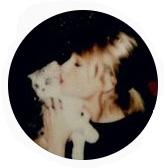
It wasn’t until the height of the COVID-19 pandemic when Sinclair first watched the “Twilight” franchise, later deciding to make a shirt for her and her friend and show it off on TikTok. People quickly became obsessed and Sinclair continued to produce shirts, later realizing she had a potential business on her hands.

“I just want to make this so terrible that she won’t want to wear it out and I’ll bully her into wearing it out, you know, but like, that kind of turned into like the entire brand of what I do now,” Sinclair said when asked about what inspired her first shirt
Stumbling into something big With no prior business experience, Sinclair was quickly thrown
into a world she knew little about. Through Google, YouTube and random tips she picked up from her UH classes, Sinclair has been able to grow her business into something recognizable and keep customers happy.
“It was a big change to go from being a normal college student with just those responsibilities and those schedules and everything to the switch of I am in charge of all of this and it’s kind of working but it also could stop working at any minute and I don’t have a backup plan,” Sinclair said.
Balancing a business on top of mental health has been tricky for Sinclair. Since starting her business, she has learned how to better manage professional fears and not let them impact her daily life.
12 COOGLIFE // September 2022
Photo by Logan Linder
“Just the little self-doubt things where nothing ever happens that’s that bad but I think, just the hardest part has been I think controlling my brain to not be so stressed out and anxious all the time, and also self-hating,” Sinclair stated.
After recently beginning to learn to use Adobe products and computer techniques, Sinclair noted that the skills will be beneficial to have, even if she eventually chooses to go into another field.
Since BUGGIRL200’s creation, it has grown from Sinclair and her best friend selling hand-printed clothes on Depop to a business currently using Shopify, a
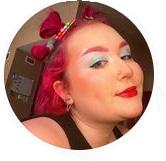
shipping and printing company, in addition to limited-edition hand-printed shirts.
“I definitely have had to learn how to keep things at the right quantities to where I know I can get everything done in a timely manner,” Sinclair said.
Advice for prospective entrepreneurs
If wanting to start your own business, not waiting is key, according to Sinclair. While it’s easy to become discouraged, Sinclair states how she managed to succeed and how everyone has it in them.
“Everything is going to be so new, you cannot prepare for any of
it. So just start and pick up the pieces on the way and just learn along the way,” Sinclair said.
As for future plans, Sinclair hopes to dabble in cut and sew patterns, where she could produce her own sustainable blanks and add colorful stitching. Sinclair eventually wants to work up to producing a full range of clothing, including pants, skirts and dresses.
“If I would have written down like ‘okay, I want to start a “Twilight” novelty ironic t-shirt business, these are the steps I have to take,’ immediately I would have been like, ‘I cannot do that, that will not happen,’” Sinclair said.
Homemakers: the cornerstone of society
 By Rey Mattes @reyputati0n
By Rey Mattes @reyputati0n
Stay-at-home parents get a bad rep, and unfairly so, in my opinion. With school, work, and
extracurricular activities, I find myself overwhelmed by my own housework sometimes. When imagining having an extra child and romantic partner to care for, clean up after, and shop for, it’s hard to not feel overwhelmed. Keeping a home pristine is a fulltime job, a job that deserves the same respect (if
not more) as any other. After all, other jobs require you to clock out. But you can’t clock out of being essential to a home.
Homemakers don’t always need to have children. To be a homemaker merely means to “manage a home.” But Google’s definition notes that women have historically led in homemaking. Generally, one is called a homemaker because they don’t have an additional fulltime job outside the home, but sometimes people can take on
13 COOGLIFE // September 2022
multiple roles in addition to being a homemaker. Nowadays, women do still homemakers, clearly. But men are also homemakers and have only increased in numbers since 1975.
I reached out to two people who are, by definition, homemakers. Here is how they answered my questions regarding making a home, and how they have come into their position. For their privacy, names have been changed
What would you say your job title is?
Micah: C.O.O. Chief Operations Officer of The Fam.
Skylar: I am a stay-at-home
mom.
How do you feel about being called a homemaker?
Micah: To be transparent, it takes a team of all family members living in the home to make it an actual home. Parents and kids make the home an actual home, a house is only four walls, a home is parents and kids that respect and love each other all contributing to keep the house running smoothly. To place the title of homemaker on one single person proves a myopic archaine, focus that places full responsibility on one single person never making parenting or marriage an actual partnership.
Skylar: I don’t really like being called a homemaker because I’m a mom which entails more than just taking care of the home. I’m not offended to be called a homemaker though it’s just an old-fashioned term.
Do you have career goals for your future? Have you had career goals that you’ve had to give up because of homemaking?
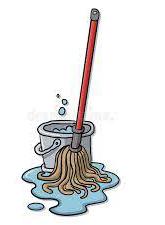
Micah: No. After my two younger kids both received separate autism diagnoses, I had to accept
that my career goals would have to take an indefinite hiatus. It took a long time for me to accept this and do not utilize the talents and skills I had mastered in an over-decade-long career.
Skylar: I didn’t give up my nursing career. I chose to change careers. Once I had children, I couldn’t imagine doing anything other than caring for and protecting them. I did my best to make sure they felt safe, secure and loved. Now that they are grown, I’m trying to figure out what I want to be when I grow up. My father lives with me, so I am still in caregiver mode, making sure he’s taken care of.
Did you choose to go into homemaking? How did you come into homemaking?



Micah: Yes, for the benefit of my children. However, I assumed I would go back to my career eventually.
Skylar: I became a homemaker because when I was pregnant and looking at daycares, my heart just couldn’t handle the thought of my baby being with someone I didn’t know. No one could care for and love my child more than me. Fortunately, we were able to survive on one income by budgeting and being smart with our money.
What is one thing that you love about homemaking? What is one thing you don’t love about it?
Micah: I love being 100% available for my kids. My oldest kid did not get this amount of my time until they were in third grade, and the amount of time I missed will always be a huge regret for me. I do not love feeling solely responsible for everything related to the care/feeding of my family, it is a tremendously stressful role to take on when the same responsibility is also mine in regards to my adult parents. Sometimes I would prefer to be the “breadwinner,” as that role carries a different level and type of stress in terms of providing for the family.
Skylar: As a homemaker, I loved spending time with my children, taking them on trips, playing games, having tea parties, playing hooky, etc. Thankfully, my husband and I made a good team so I never felt stuck doing it all myself. What I didn’t like is people making a mess after I’d cleaned (not cleaning up after themselves) and repeatedly asking things to be done by the other members of the household.
What do you wish more people understood about homemaking?
Micah: I wish more people understood the actual daily workload a homemaker carried. The role isn’t just doing laundry and dishes, it is exponentially more. For a former career person to be minimized to a title that is traditionally dismissed to the “housewife eating bon-bons” stereotype, it certainly is not a desirable role for people like myself.
Skylar: I wish people would understand that just because someone doesn’t work outside the home doesn’t mean they are lazy/do nothing/have it easy. Everyone has their own version of life challenges and stress.
What is the most difficult thing about homemaking?




Micah: For me, it was making friends with other parents. I was once a successful businesswoman, I managed my career, my child and my college career and never really had a hard time making friends with most parents. Once I became a full-time homemaker, everything flew out the window and I could not relate to the parent group I landed in.
Skylar: The most difficult thing about homemaking is the kids grow up and move out. It’s bittersweet because they are amazing humans, but I feel lost and have to find myself again. That being said, I would do it all over again!
Homemakers themselves can agree that they wish to stray away from the 1950s nuclear family housewife imagery. There’s so much more to making a home than one person can do. Many who left careers find that vintage image to be more of a mockery than a compliment. However, homemaking is a noble career in itself and should be treated as such. So many homemakers have training in their chosen professional fields but have found themselves needing to be home to support their families. Even those who haven’t left their careers should be respected as the true cornerstone of the home.
15 COOGLIFE // September 2022
Welding your way to success
 By Maria Godinet @gjmaria
By Maria Godinet @gjmaria
Let’s be real; The world goes round because of money. Without money, you can’t enjoy the delights that come from a capitalist society. But what if college is not something you can afford or even want to do? Fear not, many have asked themselves this question and found themselves taking an alternative path to their success. One such person is Anthony Davila, a welder.
Why Trade School?
During his senior year of high school, Anthony had no idea what type of career he wanted to pursue. He felt as though college wasn’t meant for him because of the lack of resources and opportunities available in his low-income community.
But on a random Wednesday during lunch, he stumbled upon a job fair at his high school that would change his life’s trajectory.
“There was a job fair that introduced me to various careers that didn’t require a bachelor’s degree,” said Davila. “There, I met a recruiter from the Arclabs
Welding School and became very intrigued about welding and the opportunity to become certified by attending trade school.”
That same day, Davila set up a meeting with the recruiter and began asking questions about the program, its cost and duration.
“In the meeting, I learned that I could make a lot of money within a short period of time, exactly 6 months to earn a certificate for welding. And the commute for me was 15 minutes away. It was the best option that best suited me for my career,” said Davila.

The journey in Trade School
Life happens, and unexpected events can occur at any given moment. For Anthony, life challenged him when his stepdad had his second stroke. This happened when he was balancing trade school and a part-time job in order to help his mom with bills. He quickly had to step in and become the man in the house.
“My mom supported me during trade school. She gifted me with my first-ever car to be able to commute to and from school. While also helping me take out a loan and be able to pay for school,” said Davila as he remembered the difficult period. “While working in my part-time job as a server in Woodrow’s, I didn’t have much of a social life since I was working late and gave most of my money to help my mom. I didn’t want to stay where I was in life. I was committed to finishing trade school to better support my family, but most importantly, to finish what I had already started despite the adversities that I was facing at home.”
Classroom Setting
Every lesson was a hands-on experience. The lessons were structured to have an hour of study time. This was followed by a trip out to the shop for hands-
16 COOGLIFE // September 2022
Photo by Maria Godinet
on learning. During school every Thursday, there was a workplace safety workshop. Every Friday, there was an exam on the things learned that week. Anthony would wake up at 5 a.m. to prepare for the day ahead. He attended welding school Monday through Friday from 6 a.m. to 3 p.m. and worked part-time evening shifts.
Advice
Today, Davila is certified in shielded metal arc, gas metal arc, and gas tungsten arc welding.

He now welds structural pieces and pipe vessels that are used in the gas and oil industries. He is still helping his mom with the bills and paying off his student loan. But most importantly, he was able to make his family and himself proud by finishing what he had started.
Davila’s passion for welding has only grown as time passed. For anyone wanting to attend trade school instead of college, he recommends the following;
“Set your mind to what you really want to do, follow your heart and don’t give up when times get hard. And make sure you enjoy what you do so that it is not only worth your time but also worth your energy.”
It’s possIble, artIsts! an IntervIew wIth Don Ferrarone
 By Rachel E. Coleman @rachel_elizacole
By Rachel E. Coleman @rachel_elizacole
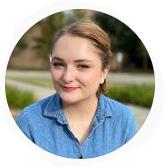
As children, we are asked around every corner, “What do you want to be when you grow up?” When I was younger, the question seemed limitless. I could be anything! Now that I am older,
those once big dreams feel like a silly fantasy. People who want to pursue artistry as a profession can often be confronted with a reality that tells them it is impossible, but that is a lie. Real people
can turn their creativity into a career. One of those people is Don Ferrarone.
Ferrarone is a producer and screenwriter whose most recent
17 COOGLIFE // September 2022
film credit is as an associate producer in “Top Gun: Maverick.” He sat down with Cooglife to share his perspective on a career in the arts, focusing on his own experience as a writer and researcher.

Ferrarone did not always write professionally, spending the first 30 years of his career in Federal Law Enforcement, traveling all over the world, catching the most-wanted criminals. The process he used to track down and dismantle dangerous, illegal organizations ended up being quite similar to the way he develops a story- although with a little less life-threatening pressure.
“The process of creating a conspiracy, piecing together a complex crime scene is in so many ways, an excellent template for creating a story,” Ferrarrone said when describing his writing process. He loves the process of meticulously taking note of each puzzle piece, allowing the crime scene (and story) to reveal themselves to him as he searches.
According to Ferrarone, the key to an authentic story is authentic research. He described authentic research as fully delving into the topic you are studying. You accomplish this by interviewing people with true experiences, reading books and taking classes with as much dedication as if researching a topic was distilling something in a chemistry lab.

“The truth is actually much more interesting than fiction. You’re not writing a biography, you take what you picked up in reality and blend it,” Ferrarrone said.
It is a fear of many artists that they will have to work another job instead of pursuing their dreams full time. Ferrarone confirmed that to survive, it may very well be necessary for most people to work while developing

their craft. However, that does not make the artist’s dreams impossible.
“You have to be so driven that you do it (your art) on the side,” Ferrarrone explained. “Many people in the arts have another way to make a living.”
While Ferrarone made it clear that the education required for a job similar to his is largely individual, as every person learns differently and has a different drive, Ferrarone does not believe a formal education is necessary.
“You don’t need to necessarily be getting a college credit, you need to be educating yourself,” he said. “Read books, take a class in screenwriting, journalism or whatever you want to pursue. But be developing your craft, not just getting an education on how to.”
18 COOGLIFE // September 2022
Life changes, and so do careers


 By Atirikta Kumar @atiriktawrites
By Atirikta Kumar @atiriktawrites
College is a difficult time for everyone, and with the expectations to do well in college comes the stress and responsibility of building a career. As we grow older, we change. Often, so do our dreams, goals and careers.

If the past two years of living within a global pandemic and economic/political unrest have taught us anything, it is that we evolve and adapt. Due to the unpredictible nature of our lives, we have to adapt to many changes, both in our personal and professional lives.
People are quitting their jobs in record numbers. Over 65% of people want to switch from their current jobs. According to a survey conducted by the New York Federal Reserve only 27% of people end up using their degrees.
Your career is a choice most college students make pretty early on. Humanity majors in particular are looked down upon as ‘unworthy.’ However, a degree in
the humanities could really open many doors for you such as multiple job paths from one degree.
A degree in psychology can help you pursue a career as a psychologist, sure. But it could also aid in a career in social work or medicine. Meanwhile, a degree in political science can be a stepping stone into law school. These are just a few examples of potential careers that are possible with a degree in humanities. Many STEM majors can also help you pursue different jobs that don’t directly correlate with your degree. Studying computer science, for example, can help you get a job as a web developer or a software engineer. You don’t have to go into I.T.
Majors are just blueprints for the start of your life. It’s okay to change them while in school by pursuing another degree or even going back to school for higher education. It’s also okay to change it long after you’ve graduated and started an initial career. It’s ultimately up to the
individual to make these choices for themselves.
In Friends, Chandler works in statistical analysis and data reconfiguration. It takes him many years (and seasons) to realize that it’s not what he wants to do. He ends the show as a junior copywriter, and he is happier for it. On the same show, Rachel also had a lot of ups and downs in her career. She starts as a barista and moves on to become a personal shopper at Bloomingdales. She ends the show as an executive at Ralph Lauren, a mid-range to luxury brand. These changes took place in a span of ten years, and none of it was smooth sailing. The end, however, was well worth it.
Switching your career brings many changes to your life. There are many reasons why someone would want to change their career. Better compensation, more benefits, better work-life balance. But overall, people seek happiness. Never be afraid to pursue it.
19 COOGLIFE // September 2022
Paving your own way Navigating a successful career despite a disability
By Cynthia Isabel Zelaya Ordoñez @cynthia_zelaya_

When Suva Bernard
Gomes first enrolled at the University of Houston, there was no such thing as an assistive technology coordinator at the Dart Center. And he certainly did not come into college with the field on his mind. As a matter of fact, he majored in psychology. However, he relied on assistive technology while earning his degree every step of the way. There was
not a day that he didn’t use it.
Gomes is legally blind due to a rare, progressive dystrophy. But he never let that get in the way of his education or career path. It was never going to be an easy one. He immigrated to the United States from Bangladesh with his family in 2008. Gomes needed a level of education, technology and care that was simply not

widely available in his home country. So his parents made the executive decision to move to the United States. It wasn’t the only reason, but it certainly was a significant factor.
Strides though education
Growing up, Gomes depended on don students with disabilities to lug around their own equipment.
20 COOGLIFE // September 2022
Photo by Cynthia Isabel Zelaya Ordoñez
One of the main things Gomes used was a CCTV, a device used to magnify his papers to 400 times their size. The center allowed him access to the devices he needed to succeed. Additionally, it allowed him extra accommodations during his exams. As a student, he always felt that the center was a great help to him.
“For me, this was the landmark of the university,” Gomes said. “I learned the whole campus from this location. Even though the technologies weren’t as good as they are today, they were still good.”
Upon graduation, Gomes went on to the Chris Cole School for the Blind. He studied daily living skills, Braille, technology skills and more there. Armed with this new training, he pursued certifications in assistive technology, not only to be an expert in their use himself but to be able to train other workers of the Texas Workforce Commissioner in their uses. His intention was to apply for a state contract with the Texas Workforce Commissioner and
dedicate his life to the study and training of assistive technologies.


A dream career
However, this all changed when he got a call from the Dart Center. They were in the process of creating an assistant technology coordinator position and invited Gomes to apply.
“I interviewed just like anybody, and then they were also interviewing others,” Games said. “And I somehow became a full-time staff member!”
Once hired, he goes to work collecting equipment that would make students’ lives better and homing them in a lab at the Dart center. One could argue that he better than anyone would know where the Dart center shines and where it could be improved, seeing as he’d used it during his undergrad. Out of the current staff members at the Dart center, Gomes and his access coordinator are the only two people that remember what the center was like when he was a student.
“We both know how the center was,” Gomes said. “It’s given me a perspective from the student side to the staff side. But now also having the ability to train staff at the center on the different technologies, the different types of alternative formats.”
When asked what advice he would give
to a student with a disability wary of choosing a career that they are passionate about due to fears of their disability getting in the way, Gomes said that thought shouldn’t even be a priority.
“When it comes to choosing a field, disabilities should not have anything to do with the job field. It’s not going to be great and easy. It’s going to be harsh, just like for everybody else. But just keep on doing what you like, and you are going to come across that position that you fall in love with.”
Never give up
Suva Gomes has found fulfillment, community and stimulation in a field he loves because of his specialized skill set and passion. He is excited to go to work because he knows his efforts make a huge difference to a population he holds near and dear to his heart. The best part of all? It’s fun!
“I don’t feel like I’m working. I feel like I play during my work with different technology. And it also helps a lot of students at the same time. It also helps out the university and what accessibility makes it more accessible, and they pay me for it.”
21 COOGLIFE // September 2022
How to utilize University Career Services to become a passionate professional
By Adrian Romero @adrian_lifts
You will spend 10-15 years of your life working at a job. That’s 90,000 hours. Minimum.
That’s a long time to spend doing something that doesn’t make you happy. Or even worse, doing something that makes you feel miserable.
It’s difficult to fit self-exploration into a busy schedule, especially that of students.

It can be an overwhelming task for most people to plan out their future careers before their prefrontal cortexes and cognitive abilities (including reasoning,

problem-solving, and comprehension) are even fully developed.
The good news is that the University of Houston offers solutions to these complex issues that often go ignored until “tomorrow.”
22 COOGLIFE // September 2022
Photos by Adrian Romero
Speaking to a specialist Adalia Espinosa, who serves as a career development specialist for University Career Services (UCS), helps students navigate through life after college.
“I think the misconception and missed opportunity is that students wait until they’re about to graduate to start using Career Services,” said Espinosa.
UCS helps guide students who feel aimless or unprepared for their future by offering assistance with major or career exploration, mock interviews and one-onone feedback on their resume and cover letter reviews. They also offer guides on planning for graduate school, salary research/ negotiation and other resources that include free professional headshots and affordable suit rentals.
The UCS main platform, besides their physical office located at Student Service Center 1, is Cougar Pathway.
This online service can be accessed through your AccessUH account.
Cougar Pathway is a database used to search and apply for on-campus jobs and internships, as well as schedule counseling appointments with UCS personnel to help further explore yourself and your professional progress.
Espinosa promotes the idea of exploring yourself by helping students identify their “personal brand.”
One method that she uses to assist with realizing your brand is an online assessment called Focus2. This free resource is customized to connect your results to majors that are offered at UH.

“It’s not like a magic 8 ball or a fortune teller,” explained Espinosa. “It’s meant to teach you about yourself. It will assess your skills, your leisure activities, your personality, your values. Overall, it tells you how those components show up for you and what some of the career paths that other people with similar results are working in. I recommend making an appointment with me after getting the Focus2 results so we can talk about the report.”
Espinosa finished the interview with one last piece of advice for those who are still searching for their passion, as well as those who have found a career path they enjoy but don’t know how it’ll work out.
Follow a path you’re passionate about “I like to use the analogy with clothing or something we see at a store and say ‘Oh, that looks really good. I want it for myself.’ You won’t know how it fits you until you try it on,” she said. “I look at this situation, pursuing a career, and choosing a major all in the same way. You don’t know if you’re gonna like it until you try it on. You can do that by volunteering. You can do it with an internship. You can do it with a part-time job.
Even if it means that you try something on and find out ‘I hate how this fits me,’ or ‘I saw this other thing that I want to explore.’ You can try on multiple different things and find out what fits your passions. Keep going until you find something that brings you satisfaction, that challenges you and fits your skill set. That’s when you know. It feels right for you.”
23 COOGLIFE // September 2022






















 By Rey Mattes @reyputati0n
By Rey Mattes @reyputati0n








 By Maria Godinet @gjmaria
By Maria Godinet @gjmaria


 By Rachel E. Coleman @rachel_elizacole
By Rachel E. Coleman @rachel_elizacole











